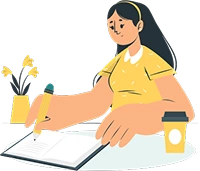Save flat 35% on Assignment
A) More books were copied by hand by monks
B) Literacy rates declined due to book shortages
C) The printing press became more important and widespread
D) Oral storytelling replaced written texts
Correct Answer: C)
The printing press became more important and widespread
Explanation
Johannes Gutenberg invented the printing press in the mid-1400s. This invention became popular during 1500s and that brought a boom to the printing industry. The earlier rare books, as they were individually written, became widespread and common. With this came a increasingly larger demand for the books.
Discover the support available through New Assignment Help USA—designed to assist with a wide range of academic writing needs. Feel free to ask questions and get informed responses from knowledgeable professionals.
The printing press made books widely available for the general populace. This enhanced literacy among people, made education more common, and brought forth new ideas.
The most popular and in-demand books during this period were religious texts like the Bible and humanist literature. Books regarding scientific inventions and treaties also saw a massive rise in their demand.
The availability of books made more people understand the underlying causes of the political issues. They even allowed the politicians and government to spread their ideas through varied ways, effectively promoting civic participation.
With the increase in book demand, the demand for paper makers, inks, paper pressers, printers and many more related ones saw increased demand too. Booksellers became another popular profession.
Yes, the standardization of books made it easy for people to access relevant materials. This contributed to a more uniform education throughout the regions and had a major yet positive impact on the way people learned.
Absolutely. Books were printed in vernacular languages during this time, too. Since most people at the time didn't know how to read Latin. It even brought a shift in the focus given to the literature in Europe towards those that showed common values reflected by the church.
